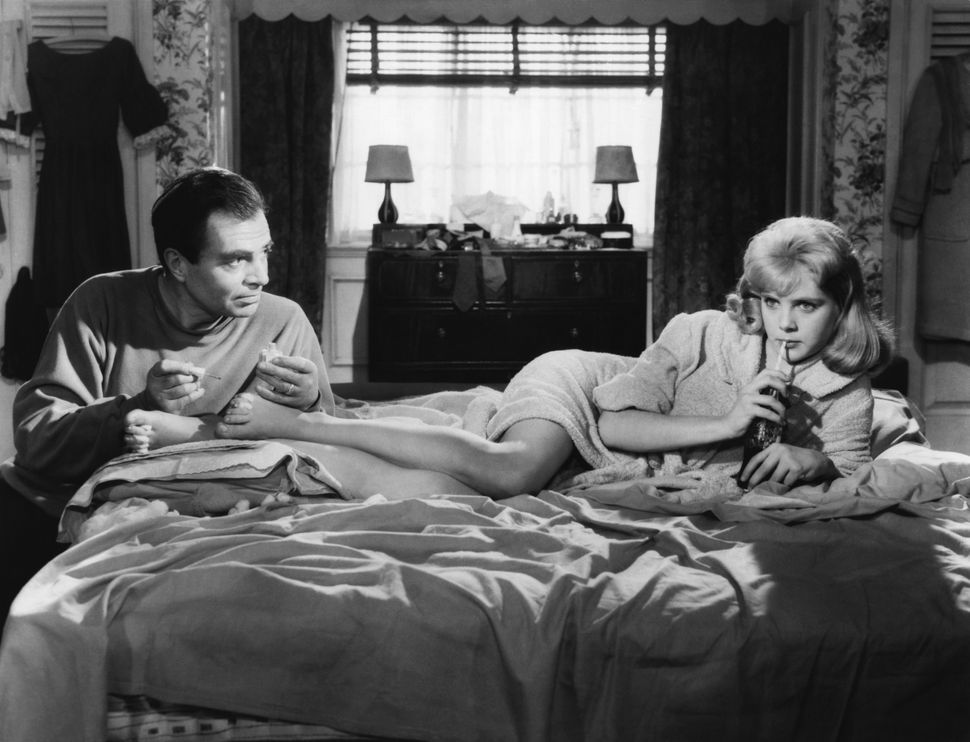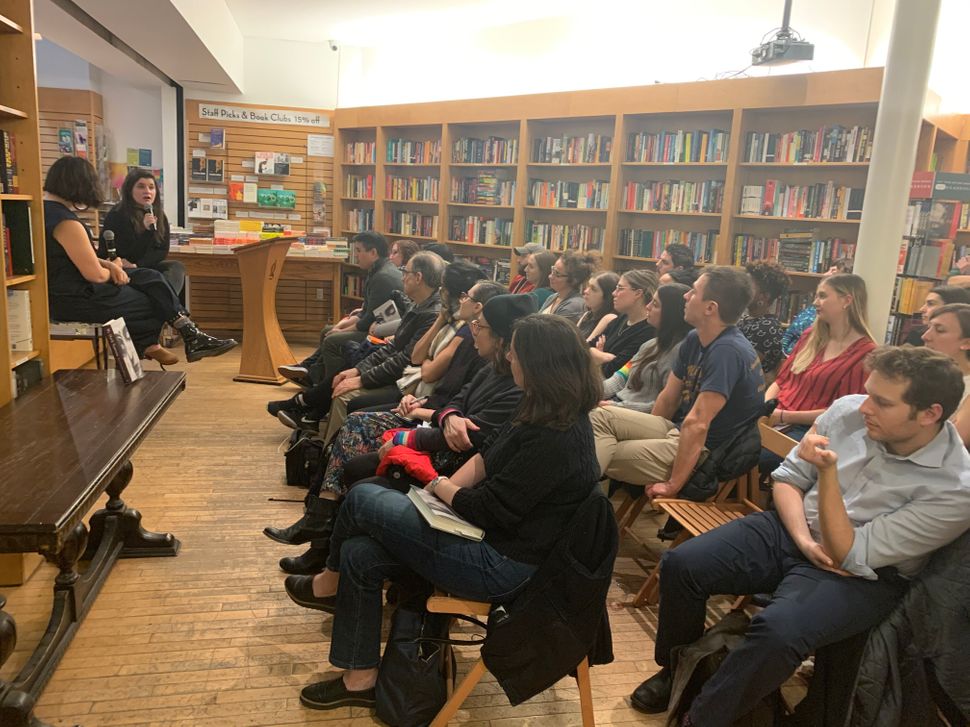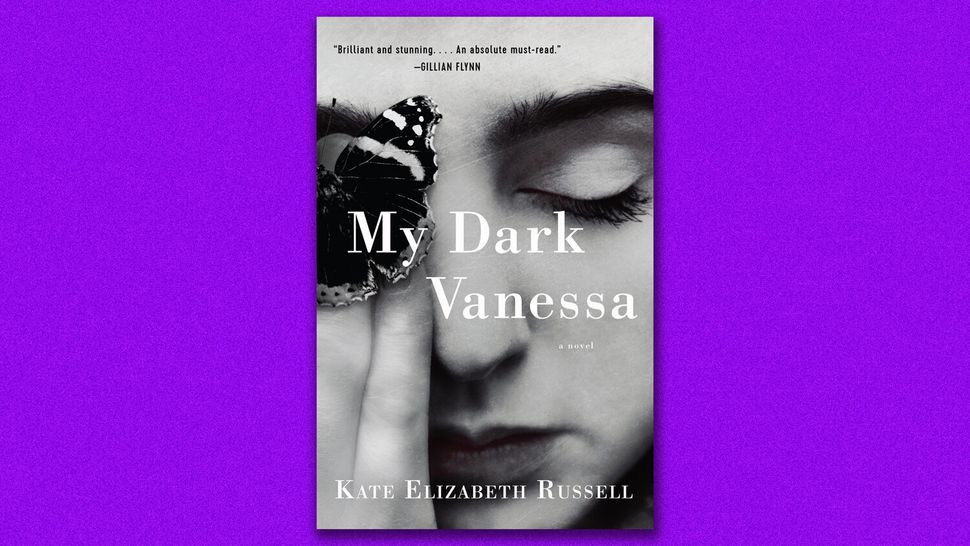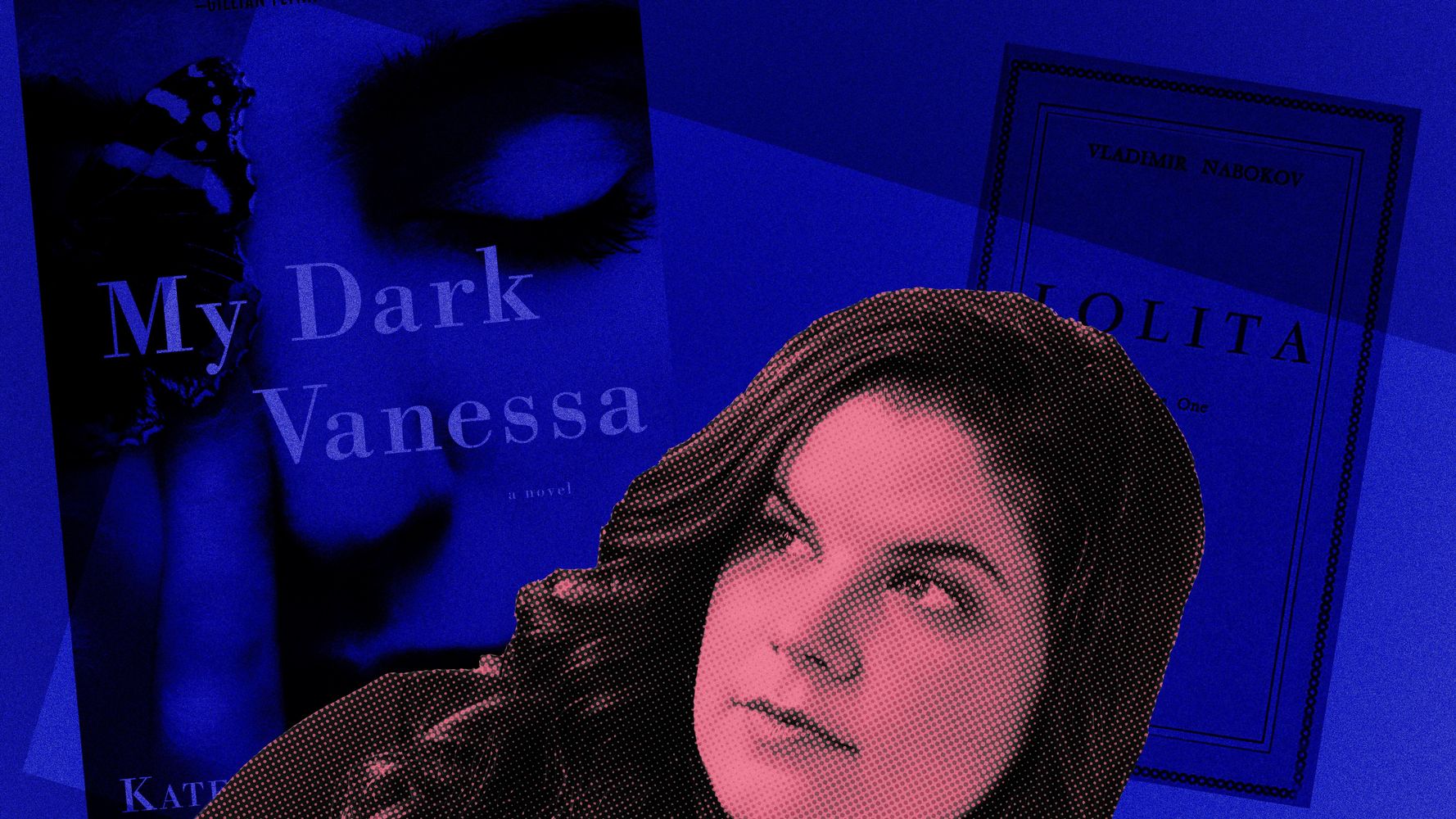[ad_1]
BROOKLYN, N.Y. – One of the most frustrating aspects of Vladimir Nabokov’s novel “Lolita” is that the reader never hears from the title character. The story is told entirely from the perspective of Humbert Humbert, a man in his late 30s who kidnaps and repeatedly rapes his 12-year-old stepdaughter. He’s an unreliable narrator who sees himself as a slave to Lolita’s seductive powers.
Humbert describes Lolita, whose real name is Dolores Haze, as playful and flirtatious, but she also cries at night and eventually runs away from him. She’s a complicated survivor, and we don’t know what Lolita thinks of her abuser or to what extent she considers herself a victim.
“My Dark Vanessa,” the debut novel by Kate Elizabeth Russell, might give readers some idea. The book gets inside the head of a character who has complicated feelings toward her perpetrator and makes space for victims who haven’t found their place in the Me Too movement. Unlike “Lolita” ― a book Russell says she became obsessed with at 14 ― the novel is told entirely from the victim’s perspective.
With stomach-turning yet poetic prose, the book explores the abusive relationship between 42-year-old English teacher Jacob Strane and his 15-year-old student Vanessa Wye. “My Dark Vanessa” oscillates between the year 2000, when Vanessa meets Strane at her elite boarding school, and 2017, when five other current and former students come forward to accuse him of sexual assault amid the Me Too movement. Vanessa doesn’t consider herself a victim and refuses to join the campaign to get him fired.
“I could participate in this movement of women upon women upon women lining the walls with every bad thing that’s ever happened to them, but I’m not going to lie to fit in,” she says.

Vanessa’s character is in a different place than victims who are ready to say “Me too.” She’s a reminder of the fact that not every survivor sees their abuse clearly or wants their perpetrator behind bars. Throughout the book, Vanessa grapples to understand her relationship with Strane. It’s a page-turner studded with speed bumps that force readers to pause and reckon with two opposing narratives: Vanessa falling in love and Vanessa being exploited by a pedophile. It’s a powerful juxtaposition to be submerged into a romance and jolted back to the reality of abuse, knowing both versions of the story have truth.
“My Dark Vanessa” has been one of the buzziest titles in the literary world ― first Russell landed a seven-figure book deal in 2018 and, most recently, she became the bullseye of a plagiarism controversy that turned out to be false. Still, it led Oprah’s Book Club to ditch the novel.
The accusation forced Russell to state publicly that “My Dark Vanessa” is informed by her teenage experiences with older men and that she first started writing the book when she was 16; her doctoral adviser at the University of Kansas confirmed to HuffPost that Russell’s early drafts were a memoir. Though Russell has said she doesn’t want to discuss her personal trauma, for more than a decade she thought of “My Dark Vanessa” as a love story.
A Love Story Or A Tale of Abuse?
On an unseasonably warm Tuesday night at Greenlight Bookstore in Brooklyn, Russell said that for so long she didn’t see Vanessa and Strane’s relationship as abusive. It wasn’t until she began reading trauma research and abuse memoirs in her late 20s that the grooming, exploitation and trauma in her own novel became clear.
“I feel like now I’m finally understanding the book that I wrote,” she told a group of more than 100 people, a surprisingly large crowd in the midst of a city facing a growing coronavirus crisis. “I didn’t see a lot of the horror of it, but I do now.”
She sat on a wooden stool wearing a black turtleneck, gold necklace and dark gray nail polish on her fingers. She was thoughtful and fidgety, holding a mic in one hand as she described how there was value in viewing her book as a romance for all those years. It allowed her to truly write from Vanessa’s teenage vantage, rather than as a judgmental adult with the life experience to recognize the abuse.

Russell’s greatest achievement is enabling readers to suspend reality and see Strane through Vanessa’s eyes. To her, he’s not a lecherous pedophile ― he’s an edgy teacher who swears in class, recites poems by memory, and wears tailored blazers and hiking boots. Vanessa trusts Strane, who claims to worship her and constantly tells her that she’s in control, consenting at every step. She craves his attention and even desires him sexually in moments.
If you forget about the age difference and power imbalance, some of the prose drips with romance: Strane “drinks” in Vanessa with his eyes, falls to his knees in her presence, compares her hair to the color of maple leaves.
It’s the kind of story that’s hard to fit into a movement largely predicated on survivors speaking out and holding their abusers accountable. But what’s often lost in Me Too is the nuanced narrative about how abuse can feel like love, and how many survivors don’t want their abusers to end up in prison.
While Russell said Vanessa’s romantic feelings for Strane made for good narrative tension, she also thinks the character gives voice to many underrepresented victims.
“There’s just so much pressure to pin down an experience of sexual abuse as abuse or as unliterally bad,” Russell told HuffPost in an interview after the bookstore reading. “But where do all the emotions go?”
A Lesson In Grooming 101
Many victims struggle to self-identify as survivors because they are abused by people they know and trust. Vanessa embodies this phenomenon. Strane acts like her mentor and lover, not an abusive monster. It’s easy to internalize the myth that being attacked by a stranger is assault, and that any other experience is “bad sex,” a “miscommunication” or even love.
And the more victims depend on their perpetrator, the more they are blinded to the abuse, according to Jennifer Freyd, a psychology professor at the University of Oregon. She calls it a “survival mechanism” victims use so they don’t have “risk losing all the things they might perceive as necessary in that relationship,” which could range from food and shelter to self-esteem.
Russell lays bare how these abusive relationships work. At its most basic level, “My Dark Vanessa” is a lesson in Grooming 101. Strane gains Vanessa’s trust by exploiting her loneliness and insecurity ― she recently had a falling out with her best friend and feels alienated from the other students at her boarding school.
He praises her writing and tells her she possesses a “rare kind of intelligence” that “these dime a dozen overachievers can only dream of.” He says they are both social misfits who crave darkness. Vanessa becomes addicted to the attention. What teenage girl wouldn’t? The idea of being prized for your intellect is more seductive than hooking up with a high school boy who will rate you on a scale of 1-10.
Strane quickly becomes the gatekeeper to Vanessa’s self-worth, the only person who can give definitive lines to her blurry edges. He locks her in a mental prison: admitting she was abused would also mean confronting the reality that “he chose me not because I was special, but because he was hungry and I was easy.” The other adults around Vanessa also fail her, ultimately choosing to protect the school’s reputation rather than her safety.
The story is a close study of how unprocessed childhood trauma haunts adults. Russell read critical trauma theory to learn about how victims will dissociate or bond with their abusers as coping mechanisms. This research helped her realize that so much of Vanessa’s behavior was propelled by unprocessed trauma rather than love. And it explains why as an adult, Vanessa is a flailing mess, clinging to her romantic vision of Strane like a lifeboat.
She drinks too much, pops Atavin and struggles at her job as a hotel concierge. She disassociates when she has sex with strangers, often older men who treat their age gap like “something out of a porno.” While Nabokov never shows us the complete wreckage of Lolita’s trauma, Russell reveals how this type of abuse casts a long shadow on victims’ lives.

Not Everyone Can Say ‘Me Too’
It’s impossible to underestimate the influence the Me Too movement has had on cultural attitudes toward sexual assault, believing survivors and holding perpetrators accountable. But when reduced to hashtags and high-profile convictions, the movement can also seem prescriptive, said Kimberlina Kavern, a senior director at Safe Horizon, a nonprofit that supports survivors of sexual violence. “I think there’s been some bullying, for lack of a better word,” she said. “I think there can be a bit of a sense that what one person did is what everyone should do.”
The movement’s pressure plays out similarly in the novel. As an adult, Vanessa is beginning to see the cracks in her romantic view of Strane. In one moment she refers to him as a pedophile, before acknowledging “he was never so simple.” When she finds out he groped another former student, she reflects on how she “bore the brunt of him” and describes how she feels “torn in two when he pushes inside, will probably always feel this way, but I want it. I have to.”
But no one allows Vanessa to think through these complicated feelings. Instead, they are horrified that she doesn’t see herself as a victim and won’t join the effort to take down Strane. “It’s selfish to watch the rest of us not be believed and do nothing to help,” one of his accusers tells her. “We owe it to each other to do whatever we can. We’re all in this together,” says a journalist who wants Vanessa to tell her story on the record. These characters use Me Too as a pressure tactic. But instead of empowering Vanessa, they push her even further towards Strane.
While the marker of Me Too justice has been high-profile convictions ― mere hours after Russell’s reading in Brooklyn, Harvey Weinstein was sentenced to 23 years in prison ― stories like Vanessa’s are a reminder that not all victims are alike. For survivors of color, in particular, going to the police might not feel safe. Others might want to hear their abusers acknowledge their behavior by going through a restorative justice process with a mediator.
By the end of the book, Vanessa doesn’t set out to punish Strane. Her desires are unclear, but Russell knew she didn’t want the next chapter in Vanessa’s life to center on her abuser. Instead, she leaves Vanessa to begin unraveling the complicated relationship, this time on her own terms.
Vanessa doesn’t decide on a label for herself or call Strane a monster, but she stops clinging to their love story as absolute truth. She begins to have conversations with her therapist, her mother and one of Strane’s accusers about her conflicted emotions. She seems to be carving out her own space, somewhere between victim and agent, that is uniquely hers.
“It’s a small victory,” said Russell, sitting down at a table in the bookstore after signing piles of her novel. “It’s bringing something into her life that isn’t about him.”
Need help? Visit RAINN’s National Sexual Assault Online Hotline or the National Sexual Violence Resource Center’s website.
Calling all HuffPost superfans!
Sign up for membership to become a founding member and help shape HuffPost’s next chapter
[ad_2]
Source link

